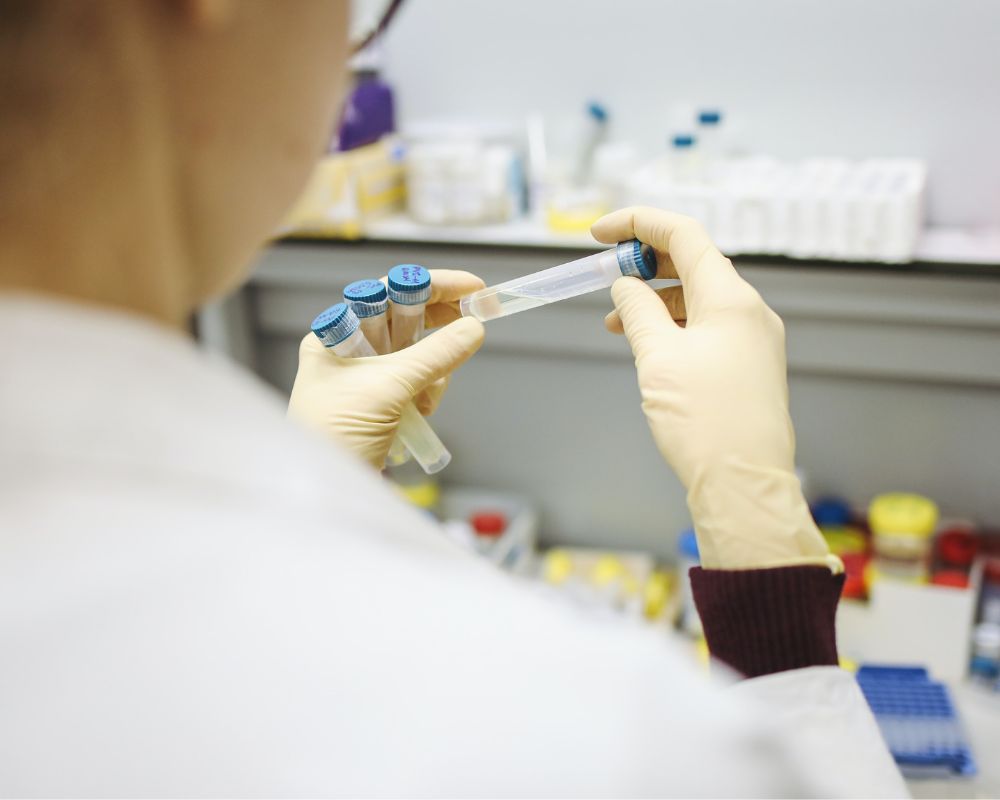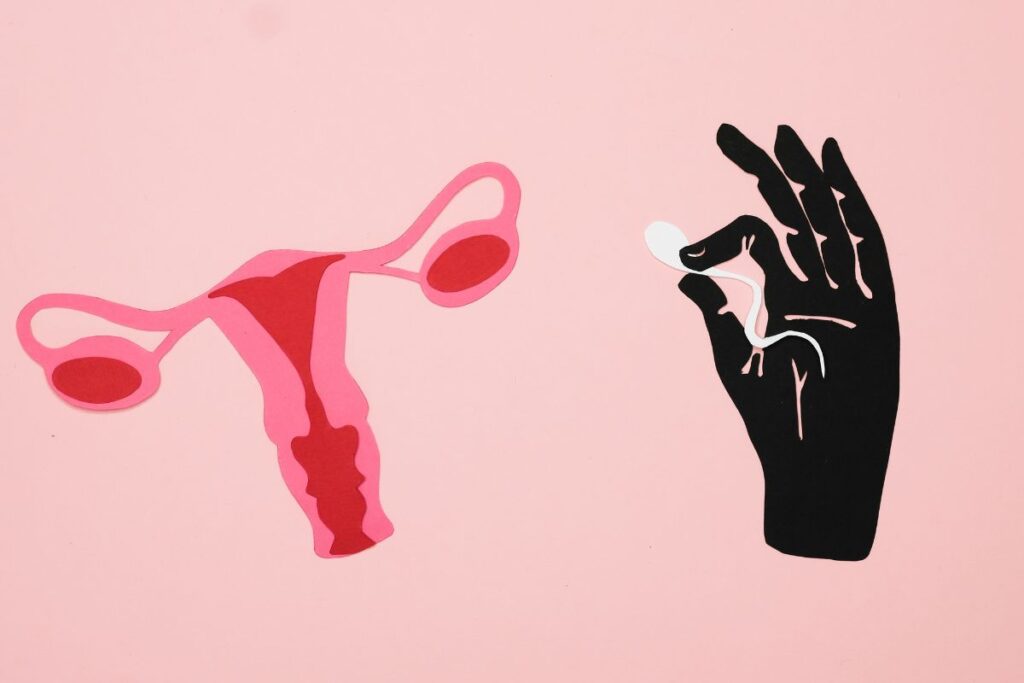Reports have indicated that 1.64 million people over the age of 13 in the U.S. identify as transgender. Transgender men and transgender women who are looking to build a family later in life are encouraged to explore their fertility preservation options. At Reproductive Fertility Center, our team consists of experts who have been helping grow LGBTQIA+ families for almost two decades. Interested in learning how we can assist in creating your family, read on to discover our fertility preservation services.
Fertility Options for Transgender Individuals
Many LGBTQIA+ members are not fully aware of fertility preservation due to it being a new topic to emerge in the community. For this reason, many transgendered men and women are at a loss of how to secure their possibility of having a family later on in life.
Female-to-male trans individuals can participate in egg freezing to safeguard their fertility opportunities. Egg freezing or oocyte cryopreservation involves ovarian stimulation to trigger egg production. Once multiple eggs are formed the eggs are then retrieved and then stored for future use.
Male-to-female transgender individuals who are seeking to preserve their fertility have the opportunity to do so through sperm freezing. Sperm freezing otherwise known as sperm cryopreservation begins with sperm being retrieved after masturbation, collected and placed into secure laboratory vials, then finally stored in liquid nitrogen.
Whether an individual identifies as a trans male or trans female it is important to begin the process of preserving their fertility before undergoing hormone therapy or gender reassignment surgery.
Preparation for Fertility Preservation
It is essential for transgender individuals to consult with healthcare professionals to discuss their individual circumstances, explore available options, and make informed decisions about fertility preservation.
Overview of the process of fertility preservation
- Consultation with a Reproductive Specialist
- The initial consultation with a fertility specialist
- Discussion of the different options available for fertility preservation
- Evaluation of the individual’s medical history and potential fertility risk factors
- Review of the risks, benefits, and costs associated with each option.

The Effects of Hormone Therapy on Fertility
Transitioning can have a large effect on a person’s fertility. It’s important to keep in mind that the specific impact can vary from individual to individual. Below are the types of hormone therapies and how they can alter a person’s chances of fertility.
- Hormone Replacement Therapy (HRT): Many transgender individuals undergo hormone therapy as part of their transition. For transgender women (assigned male at birth, transitioning to female), estrogen therapy is typically used to feminize their bodies. This can lead to decreased sperm production and fertility over time. However, it’s important to note that fertility can still be possible during the early stages of hormone therapy, and it varies from person to person.
- Testosterone Suppression: Transgender men (assigned female at birth, transitioning to male) often undergo testosterone therapy to develop masculine secondary sex characteristics. Testosterone therapy can cause menstrual irregularities, such as cessation of periods, which can reduce fertility. It is important to note that the impact on fertility can vary, and some individuals may still be able to conceive while on testosterone therapy.
- Surgical Interventions: Some transgender individuals undergo gender-affirming surgeries, such as removal of the uterus (hysterectomy) or gonads (orchidectomy or oophorectomy). These procedures generally result in sterility, making it impossible to conceive naturally. However, it’s worth noting that surgical interventions are not always pursued or necessary as part of every individual’s transition.
- Preservation of Fertility: For those who desire to have biological children in the future, options like fertility preservation exist. Transgender individuals may choose to freeze their sperm or eggs before starting hormone therapy or undergoing surgeries, which can provide the possibility of using assisted reproductive technologies, such as in vitro fertilization (IVF), in the future.
It’s essential for individuals considering transitioning to consult with healthcare professionals who specialize in transgender healthcare, such as endocrinologists or fertility specialists. These experts can provide personalized information, guidance, and support regarding fertility considerations and available options based on an individual’s specific circumstances and goals.
Fertility Preservation Options, an overview of the different fertility preservation options available, including sperm and egg freezing, embryo freezing, and ovarian tissue preservation.

Common Transgender Fertility Questions
- What is transgender fertility preservation? Fertility preservation for transgender individuals involves the process of preserving reproductive abilities whether they involve sperm or eggs before undergoing medical interventions such as hormone therapy or gender-affirming surgeries that may impact fertility. This allows individuals to have the option of having biological children in the future, even after their transition.
- What are some fertility preservation options for transgender individuals? Some fertility options that transgender individuals can take are freezing their eggs or sperm before utilizing hormones or undergoing gender reassignment surgery.
- How much does egg freezing cost for FTMs? The cost to freeze eggs may differ from each fertility clinic but the cost can range from $6,000-$20,000.
- What is the sperm-freezing process like for MTFs? The process typically involves providing a semen sample through masturbation, collecting the sperm, then freezing the sperm until the person is ready to build their family.
Exploring Your Fertility Preservation Options
Fertility preservation is an important aspect to consider for those who may undergo hormone therapy or gender-affirming surgeries that could affect their opportunity to become a parents later on. Engaging in open and informed discussions with healthcare professionals such as those at Reproductive Fertility Center is key to making decisions aligned with personal goals and desires for future family-building options. If you are interested in preserving your fertility and are a member of the LGBTQIA+ community contact our team today!
Learn About Treatments for the LGBTQIA+ Community
We strongly believe that LGBTQIA+ individuals and couples have the right to access inclusive fertility treatments that affirm their identities and help them fulfill their dreams of starting a family. If you’re interested in learning more about fertility options specifically designed for same-sex and transgender couples, we invite you to visit our dedicated page for the community. We look forward to having the opportunity in helping you navigate this journey towards parenthood with support and understanding.




